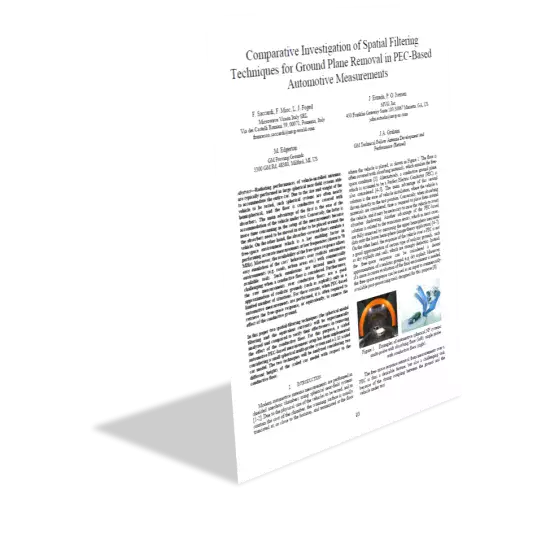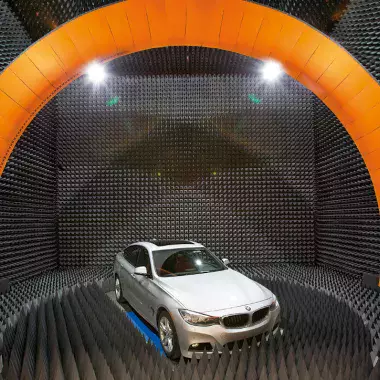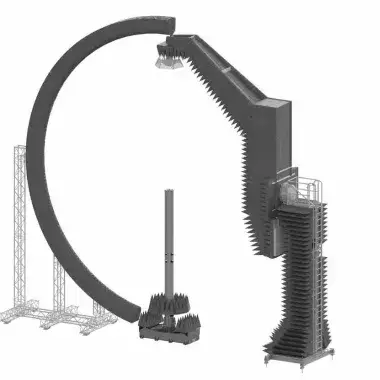
Radiating performances of vehicle-installed antennas are typically performed in large spherical near-field systems able to accommodate the entire car.
Due to the size and weight of the vehicle to be tested, such spherical systems are often nearly hemispherical, and the floor is conductive or covered with absorbers. In this paper two spatial-filtering techniques (the spherical modal filtering and the equivalent currents) will be experimentally analyzed and compared to verify their effectiveness in removing the effect of the conductive floor. For this purpose, a scaled automotive PEC-based measurement setup has been implemented considering a small spherical multi-probe system and a 1:12 scaled car model. The two techniques will be analyzed considering two different heights of the scaled car model with respect to the conductive floor.


